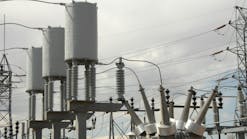U.S. DOE Announces $300 Million Grants to Speed Up, Strengthen Electric Transmission Siting and Permitting Processes
The U.S. Department of Energy (DOE) has announced $300 million grants for states, tribes, and local governments, the Transmission Siting and Economic Development (TSED) grant program, to accelerate and strengthen electric transmission siting and permitting processes to help achieve the Biden-Harris administration’s climate and clean energy goals of 100% clean electricity by 2035 and reducing the U.S. greenhouse gas emissions by 50-52% in 2030, below 2005 levels.
The initiative, supported by Inflation Reduction Act and administered by DOE's Grid Deployment Office, is designed to not only overcome state and local challenges to expand transmission capacity but also support communities along major new and upgraded lines. Construction of new electric transmission infrastructure is important to help deploy reliable and affordable energy for consumers, create good-paying jobs and meet the Biden-Harris administration’s goals.
“To meet our ambitious clean energy goals, we need to expand the nation’s transmission capacity by 60% over the next seven years,” said U.S. Secretary of Energy Jennifer M. Granholm. “Now, thanks to President Biden’s Investing in America agenda, we have the funding to build out a grid chock-full of clean, cheap, reliable electricity and accelerate transmission expansion while creating good-paying jobs across the country.”
The grant is part of broader Biden-Harris Administration program worth $760 million to advance transmission buildout by streamlining federal reviews of transmission projects and investing in a wide range of grid upgrades to help lower electricity costs, strengthen reliability and reduce climate pollution.
Independent estimates not only expect transmission systems to expand by 60% by 2030 but also triple by 2050 to meet the country’s growing clean electricity and resiliency demands.
The TSED grant program will provide financial support to state, tribal, and local entities responsible for issuing the permits required for critical electric transmission projects.
Additionally, the program can fund studies, modeling, environmental planning and analysis to assess alternatives, better inform decision making and reduce the time taken to process applications. It can also help engage with members of the public, including tribal, rural and disadvantaged communities and facilitate participation in regulatory proceedings at the Federal Energy Regulatory Commission and other regulatory agencies and other Secretary of Energy’s approved activities.
The program aims to provide financial support to economic development projects in local communities impacted by new transmission development ensuring community and labor engagement, investment in America’s workforce and advance diversity, equity, inclusion and accessibility.
TSED grants, within the $300 million funding opportunity announcement (FOA), are available to state, tribal and local government applicants to support engagement, economic development and other benefits in communities affected by the construction and operation of interstate or offshore transmission projects.
Community-based projects can include energy investments such as resilient microgrids, renewable power integration, or electric vehicle charging infrastructure; support for essential community facilities for public safety, healthcare, education, and improved transit; or encouraging community togetherness by investing in community centers and creating green spaces. Funds can also support job training and apprenticeship programs.
Transmission developers are not eligible for TSED grants, but can work with siting and permitting agencies to propose innovative solutions to improve cross-jurisdictional coordination, strengthen permitting processes and resolve permitting bottlenecks, among other things.
The TSED grant program is not intended to replace developer-funded community benefits programs, but expects to be additive, encourage innovation and motivated by communities and their requirements.


